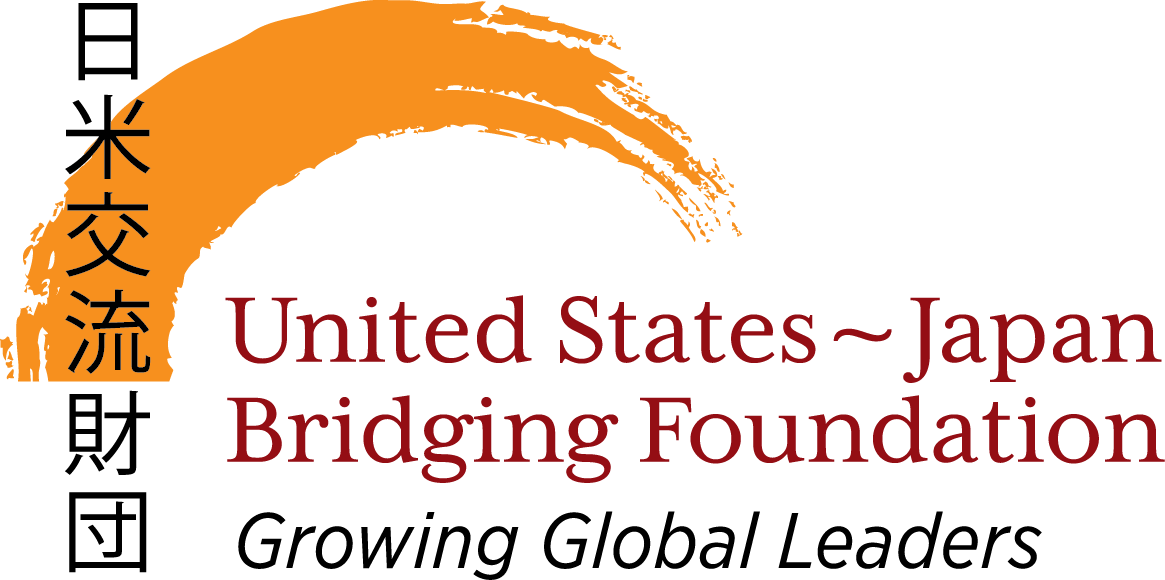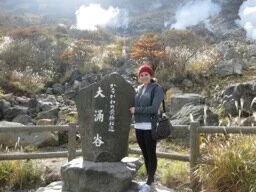Caitlin's Story: How the Bridging Scholarship and 3/11 Impacted Her Life
My foreign exchange experience in Tokyo started out like the stories you normally hear: I was swept away by the culture, the language, the friends, both Japanese and foreign, and the travel to the green and beautiful countryside. I had my days replete with Japanese language headaches and those where I felt nearly fluent, my interactions muddled by cultural misunderstandings and those brightened by willingness to discuss different perspectives, my moments of sheer confusion and those of sudden and vibrant clarity. I passed six months in this way, and I was looking forward to starting my next semester of classes after a lengthy and refreshing spring break.
The Fukushima triple disaster happened while my mother and her significant other were visiting me in March. We were hiking ten or so miles outside of Osaka, happily surprised by a sudden, unseasonal flurry of snow and pleasantly unaware of what was occurring on the northern half of the island. On our way back to our hotel, my mother made a strange noise in conversation, and we laughed hard and uncontrollably for several delightful minutes. We made the walk back to our hotel room, and I casually opened my computer. Our priorities instantly changed.
Where my mother and her boyfriend had been carefree travelers moments prior, they quickly became confused foreigners in an unfamiliar country undergoing a national disaster. Where I had been a bright-eyed student showing what I’d learned to my family, I suddenly found myself a Japanese-speaking guide to safety, unexpectedly heavily burdened with responsibility.
I guided them back to Tokyo, where they were able to board their airplane as planned and fly back to the United States. I remained in Tokyo for another week. The anxiety in the city was tangible, and for the first time in my life, I understood the classic metaphor of being able to cut tension with a knife.
After the third reactor at the Fukushima Daiichi plant melted down, both my home institution and my family decided it was time for me to come home. This experience was the trigger that made me commit to entering the field of global health. My undergraduate studies had been in both physiology and Japanese, and I’d already been looking for a way to combine the two. The confusion I faced in Tokyo during the radiation scare furthered my drive, and I entered a graduate program in International Health at the Johns Hopkins Bloomberg School of Public Health soon after finishing my undergraduate career.
Part of my graduate program involved practical experience. A huge amount of freedom was given to us, and I applied to multiple opportunities before deciding what to do. I spent two months in Ankara, Turkey, researching traffic safety in middle-income countries. From there, I journeyed to Hiroshima, where I had been accepted for a one year fellowship at the Radiation Effects Research Foundation to study the effects of atomic bomb radiation on health. It was the doorway to the answers I’d been looking for since I had evacuated Tokyo years ago, and I learned quickly, absorbing both the scientific information and the technical Japanese language surrounding it. I became involved in studies on the health effects of atomic bomb radiation, both contributing to data analysis and to health communication.
Years after my confused attempts to find answers to whether I was in danger in Tokyo, I was able to concisely explain both this and more to others in the public arena. I was reawakened, as well, to the part of my foreign exchange experience I hadn’t wanted to leave behind: the culture, the language, the friends both Japanese and foreign, the travel to the green and beautiful countryside. My days with headaches returned, but so did my days of near fluency. To my surprise, I found that the latter outnumbered the former. Such was the case, as well, with my ability to discuss and absorb various cultural perspectives and with my moments of sudden and vibrant clarity in society.
It was in one of those moments of clarity that I realized just how much I had grown since my days as an exchange student in Tokyo. It was in another of those moments that made me decide to stay at the Radiation Effects Research Foundation for a second year, expanding my knowledge of radiation and contributing to broadening the world’s understanding of the same.
I write this from a small café, tucked into one of the side streets of downtown Hiroshima. I write with gratitude for the Bridging Fellowship I received and for the opportunities my time in Tokyo has granted me years after I first stepped off the plane in Narita Airport. I write with respect for the past, for the events in Hiroshima, Nagasaki, and Fukushima. Finally, I write with excitement and hope for the future, and for my continued experiences working in and working with this amazing country and the wonderful people herein.

